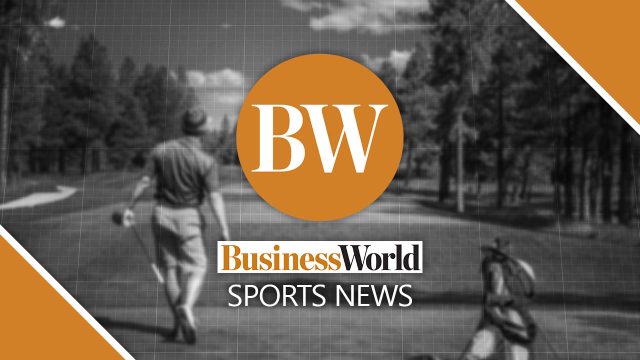For a nation obsessed with telenovelas, there is nothing more gripping and terribly dramatic as the agony and ecstasy of a Senate Blue Ribbon Committee Hearing on questionable purchases and deficiencies in compliance with procurement audits. Apart from, or maybe because of, the escalating tensions brought about by the upcoming Philippine elections in 2022, corruption inquiries and allegations occupy the headlines and most of the chatter on social media. In the midst of a health crisis, the voting public wants to know one thing — did anyone profit from the pandemic?
Exchanges of vicissitudes, public self-recriminations, and political power-mapping (or matrixing) aside, if anyone did unconscionably profit while people are literally dying on the streets, what is it with the current system that allows this to happen? Is there a means to make government purchases more efficient in an emergency where supply chains are broken, and lockdown restrictions affect suppliers’ ability to implement contracts? Under normal circumstances, the market regulates itself, but in times of crisis such as a global pandemic, the demands for goods and medicines exceed supply causing unprecedented and uncorrected price inflation. Here, the search for the balance between fast-track purchasing through simplified and streamlined processes and post-facto supplier review has begun.
THE LEGAL FRAMEWORK ON GOVERNMENT PROCUREMENT
The Philippines has a single law on procurement — Republic Act No. 9184, otherwise known as the “Government Procurement Act of 2003” (Philippine GPA). The Implementing Rules and Regulations were approved in 2003 and revised in 2009 to address, among others, deficiencies in domestic and foreign-funded procurements in government, and again in 2016, to adopt good practices from development banks to achieve “procurement professionalism.” In 2019, the Philippines went even further and submitted a request to become an observer in the Committee on Government Procurement of the World Trade Organization (WTO), in preparation for potential accession to the WTO Agreement on Government Procurement (WTO GPA). In broad strokes, the Philippines was poised to accede to the WTO GPA as the core principles of the Philippine GPA are in conformity — procurement processes are transparent, competitive, efficient, and there is accountability. The Philippine GPA likewise makes direct reference to the direct application of the WTO GPA as the relevant procurement law in case the Philippines becomes a member.
The Philippine GPA also consolidates and standardizes procurement rules and procedures for all National Government agencies including government owned and/or controlled corporations, local government units, the Senate and House of Representatives, as well as those made by all Courts in the Philippines wanting to purchase goods and services, including infrastructure and consulting services. To ensure implementation, the Commission on Audit (CoA) evaluates the compliance of all government procuring entities with the requirements under the Philippine GPA by reviewing the bidding procedures and the manner by which the bid is awarded to the winning contractor.
EMERGENCY PROCUREMENT IN THE PHILIPPINES
On March 8, 2020, President Rodrigo Duterte signed Proclamation No. 922 declaring a State of Public Health Emergency throughout the Philippines following confirmed local transmission of the COVID-19 virus. On March 16, 2020, Proclamation No. 929 was declared putting the Philippines in a State of Calamity, thereby affording the National Government and the local government units ample latitude to utilize and appropriate funds to contain the spread of COVID-19 and continue the basic services of government. The State of Calamity was extended until Sept. 12, 2021 by virtue of Proclamation No. 1021 and again until Sept. 12, 2022 by virtue of Proclamation No. 1218.
While in a State of Calamity, the Government Procurement Policy Board (GPPB) and CoA confirmed the authority given to procuring entities to use negotiated procurement for the government to timely respond to the public health emergency. These Proclamations and guidelines were further affirmed by the enactment of Republic Act No. 11469 or the Bayanihan to Heal as One Act and Republic Act No. 11494 or the Bayanihan to Recover as One Act.
The Philippine emergency procurement system allows for shortened notices for health supplies, medicines, and vaccine procurement and conferred the authority upon procuring entities to make advance payments to suppliers or winning contractors. Aside from doing away with competitive bidding in some cases and allowing for negotiated procurement, splitting of contracts was allowed and a Notice to Proceed was no longer required for the purchase to be confirmed. The only safeguard in place was that the procuring entity should ensure that the purchase shall not constitute an “irregular, unnecessary, extravagant, excessive or unconscionable use of funds, as defined by existing accounting and auditing rules.”
GAPS IN THE COVID-19 PROCUREMENT POLICY
As evinced from the line of questioning by the Senators during the Senate Blue Ribbon Hearing on public protective equipment procurement, the following bottlenecks are common or faced during emergency procurement:
• Procurement was not coordinated between the National Government and local government units.
• There is no central committee created for COVID-19 procurement; conflict or duplication of purchases was observed between the Department of Budget and Management (DBM), the Philippine International Trading Corp. (PITC), and the Department of Health (DoH).
• There is no formally defined emergency procurement governance structure in terms of accountability, approval requirements, and delegation of authority.
• A complaint handling mechanism for emergency procurement has not been convened or resorted to.
• There is a lack of clarity on the exact volume of procurement needed to meet market demands.
• Aside from CoA, there is no agency or committee responsible for the post-facto oversight or review of the procurement process.
STRATEGIES IN APPROACHING URGENT PROCUREMENT
In the recently concluded study on the “Opportunities and Challenges for Public Procurement in the First Month of the COVID-19 Pandemic: Results from an Expert Survey,” the World Bank Group recommended strategies for an improved emergency procurement system to combat the regression coefficients between efficiency and transparency in procurement:
• Assess the adoption of critical and high-risk procedures for emergency procurement and adjust the latitude on negotiated procurement accordingly.
• Improve on the regulatory framework on emergency procurement by amending the Philippine GPA.
• Strengthen and invest on e-procurement systems.
• Provide clear legal and regulatory guidelines around emergency procurement.
• Build a transparent and accountable procurement system by reviewing the procurement process done through expedited modalities such as direct contracting.
Moreover, and despite the emergency concerns, the Philippine Competition Commission (PCC) can also look into and ensure that competition policy is not disregarded in times of emergency procurement. Procuring entities should opt for competitive tendering; focus should be on building a fast-tracked and simplified competitive procedure and not on negotiated procurement. Existing contracts should not be renewed or extended, and purchases made by direct award should be limited to what is necessary in terms of volume to address the emergency. It is also prudent to start building market intelligence to inform on emergency purchases and be vigilant against suspicious selling patterns or suppliers.
The Philippines should also strongly consider accession to the WTO GPA and allow foreign or more competitors in the government procurement market.
At the core of possible procurement solutions, technology once again occupies a central component. Big data and analytics can and should be used in the supply chain to manage the impact of COVID-19. Organizations, including government agencies that provide basic services, should lean towards data-driven decisions for an effective response to procurement by creating analytic models, building databases, and capturing and predicting the volume of demand for goods and services. Big data and analytics can bring about a new frontier with the premise of transformative changes in procurement such as risk analysis, real time performance outputs or scorecards of suppliers, data mining on price trends, and predictive analytics on forecast spend and pricing. Investment in these technological structures by opening up market access to public services can also boost the nation’s capacity in accelerating growth of industries that can improve on our way of doing business.
The COVID-19 pandemic has tested the legal and administrative framework of Philippine procurement, both in times of plenty and in times of urgency. The gaps in the law and the lack of accountability indicates that procurement can be further strengthened to ensure a more agile and honest response. The quality of institutions and the capacity of the State governance is truly tested in times of contagion and calamity. Responsiveness and accountability can co-exist in an emergency response and the behemoth that is the government, with all its moving parts, can work in both national and granular levels. After all, as Jane Bodine famously ends the movie Our Brand is Crisis, “if you don’t like the road you’re on, start paving one.”
Sources used and recommended for further reading:
• Torino, Jellie M., “GPA and the Philippines: Likely or Unlikely?,” Procurement Law Journal (2016)
• Arrowsmith, Sue et al., “Public Procurement in (a) Crisis? Global Lessons from the COVID-19 Pandemic” (2021)
• World Bank Group, “Opportunities and Challenges for Public Procurement in the First Month of the COVID-19 Pandemic: Results from an Expert Survey” (2021)
Kristine C. Francisco-Alcantara is the Managing Partner of Abad Alcantara and Associates and is a Member of the Board of Trustees of the Foundation for Economic Freedom.
AAALaw@tradelawyers.ph
www.tradelawyers.ph











